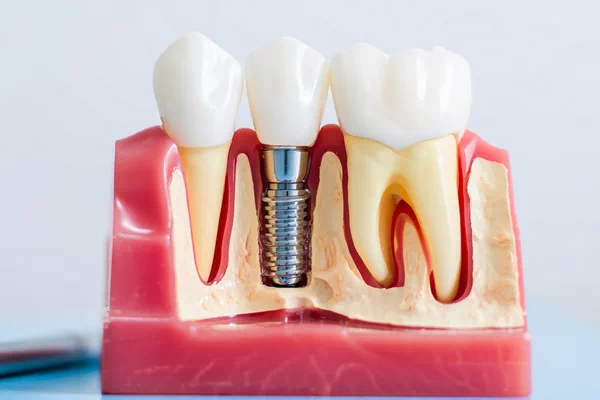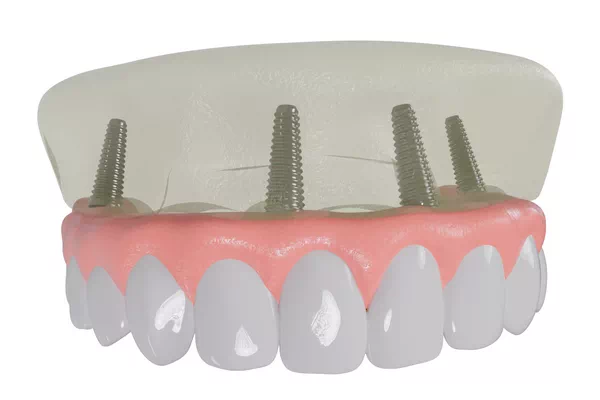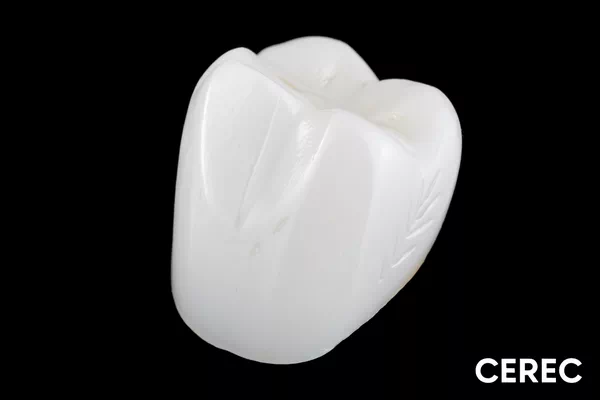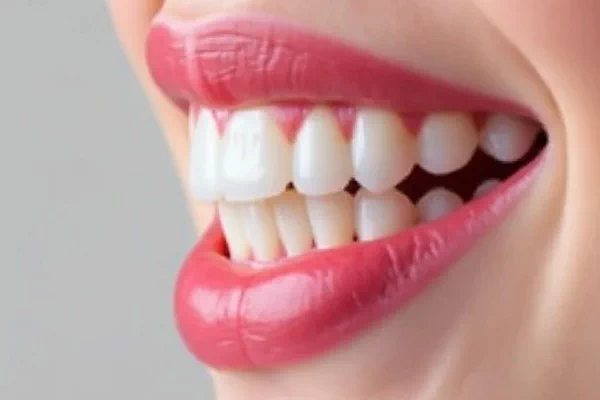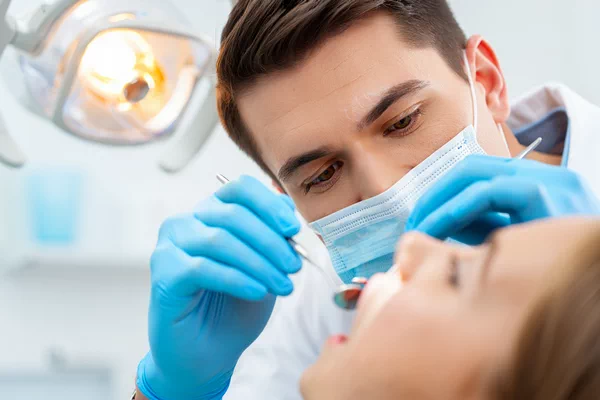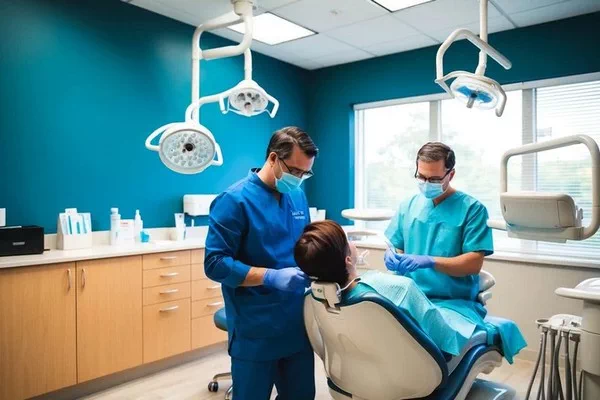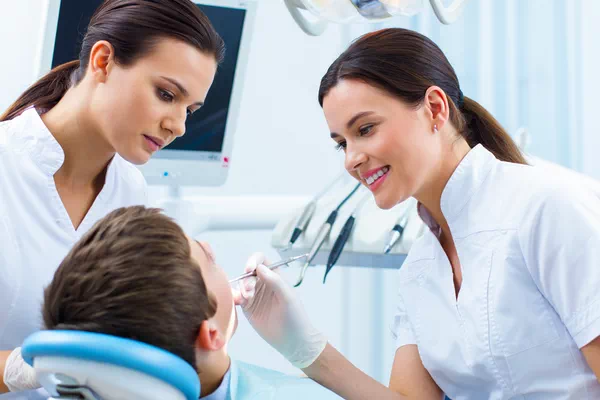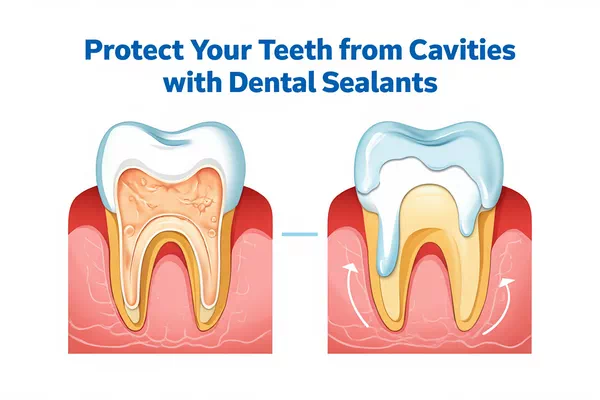Treatment for Bruxism in Lorton VA
Bruxism, the involuntary grinding or clenching of the teeth, is a common condition that can lead to a variety of oral and physical health issues.
Lorton Dentist, located in Fairfax, VA, and serving the surrounding area, provides expert bruxism care. We offer nighttime teeth grinding guards to help patients manage this condition.

What is Bruxism?

Bruxism is a condition characterized by involuntary grinding or clenching of the teeth, often occurring during sleep. This phenomenon can lead to a variety of problems, including wear and tear of tooth enamel, headaches, jaw pain, and other unpleasant symptoms.
There are two main types of bruxism: daytime and nighttime.
Daytime bruxism is usually associated with conscious clenching of the teeth in response to stress, anxiety, or concentration. Nocturnal bruxism, on the other hand, occurs during sleep and is usually not consciously recognized by the person. It is nighttime bruxism that is the most dangerous, as the person has no control over the process and can cause significant damage to the teeth and jaw muscles.
What are the causes of bruxism?

The causes of bruxism are not fully understood, but there are a number of factors that can contribute to its development.
These include:
- stress
- anxiety
- malocclusion
- jaw structure abnormalities
- certain medications
- neurological disorders
In some cases, bruxism may be associated with alcohol, caffeine, or tobacco use.
Symptoms of bruxism
Bruxism symptoms can vary depending on the severity of the condition and the individual’s characteristics.
The most common symptoms include:
- wear and tear of tooth enamel
- chipping and cracking of teeth
- increased tooth sensitivity
- headaches
- jaw pain
- neck and shoulder pain
- clicking or grinding sounds in the jaw joint
- sleep disturbances
In some cases, bruxism can lead to the development of temporomandibular joint syndrome (TMJ), which is characterized by chronic pain and dysfunction of the jaw joint.
Do you suffer from bruxism?
Book an Appointment Today

The specialists of the Lorton Dentist will select a treatment for bruxism depending on your age, general condition, medical history and preferences.
We treat this disease with mouth guards, night guards and medications.
You can contact the practice online or call the number provided to schedule an appointment.
Diagnosis of bruxism
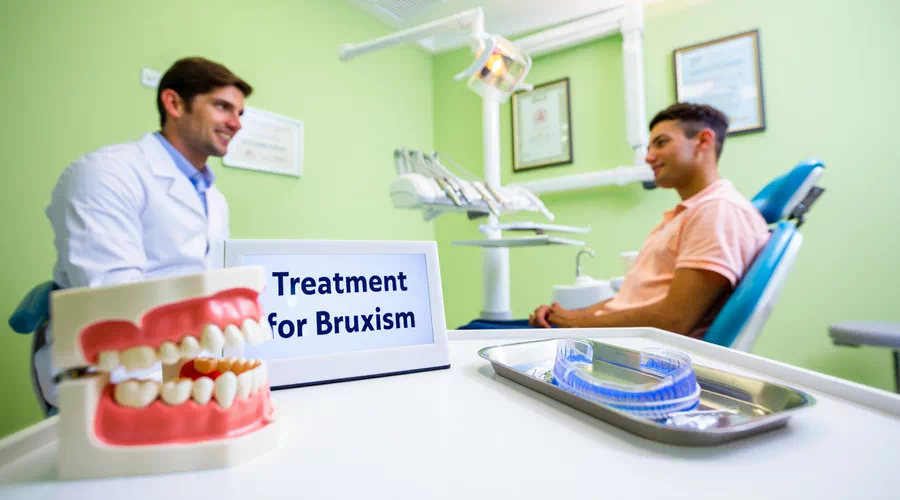
Diagnosis of bruxism typically involves an oral examination by a dentist, evaluation of the teeth and jaw muscles, and questioning the patient about the symptoms and possible causes of bruxism.
In some cases, additional tests may be required, such as a polysomnography (sleep study) to determine the presence of bruxism during sleep and to rule out other sleep disorders. X-rays of the jaw may also be taken to evaluate the health of the jaw bones and joints.
What is the treatment for bruxism?
Treatment for bruxism aims to reduce symptoms, prevent further damage to teeth and jaw muscles, and eliminate possible causes of bruxism. There are several treatments for bruxism that can be used alone or in combination.
- One of the most common treatments for bruxism is the use of a night guard, or occlusal splint. A night guard is a removable device made of soft or hard plastic that is worn over the teeth while you sleep. The guard protects the teeth from wear and tear and helps relax the jaw muscles.
- Another treatment for bruxism is physical therapy. Physical therapy treatments such as jaw muscle massage, jaw relaxation exercises, and heat treatments can help reduce pain and tension in the jaw muscles.
- In some cases, medication may be needed to treat bruxism. Muscle relaxants such as baclofen or tizanidine may be prescribed to relax the jaw muscles and reduce pain. In some cases, antidepressants or anti-anxiety medications may be prescribed to reduce stress and anxiety, which may contribute to bruxism.
- In severe cases of bruxism, where conservative treatments are ineffective, surgery may be required. Surgical treatment may involve correcting the bite, removing obstructions to the normal functioning of the jaw joint, or surgically reshaping the jaw bones.
- In addition to medical treatments, there are also self-help strategies that can help reduce the symptoms of bruxism. These include reducing stress, improving sleep hygiene, avoiding alcohol, caffeine, and tobacco, and using relaxation techniques such as meditation and yoga. It is important to be aware of your clenching habit and try to relax your jaw throughout the day.
FAQ
How to Choose the Right Treatment Method?
The treatment method for bruxism depends on many factors, including the cause of bruxism, the severity of symptoms, your overall health, and your personal preferences. It is important to consult with your dentist or doctor so they can evaluate your condition and develop a personalized treatment plan.
How long should you wear a night guard?
The length of time you should wear a night guard is determined by your dentist based on the severity of your bruxism and the effectiveness of your treatment. In most cases, you will need to wear a night guard every night for several months or even years. It is important to visit your dentist regularly to monitor your guard and assess the effectiveness of your treatment.
What should you do if your night guard breaks or gets lost?
If your night guard breaks or gets lost, you should see your dentist as soon as possible to have a new guard made. Continuing to grind your teeth without protection can cause further damage to your teeth.

